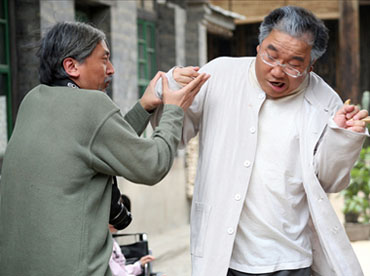
TCM Perspective On Alzheimer's Disease
In Chinese medicine, Alzheimer's disease is categorized as lao nian xing chi dai, literally, senile feeblemindedness but commonly translated as senile dementia, wen chi, civil madness, and wu chi martial mania, in Chinese medicine. In the latter case, there is marked impetuosity, irritability, red face and eyes, restlessness, and agitated movement. It 's believed that Alzheimer's Disease is caused by factors, such as former heaven natural endowment insufficiency, aging, internal damage by the seven affects, and unregulated eating and drinking.
Western Point of View
Alzheimer's disease (AD) is a slowly progressive disease of the brain that is characterized by impairment of memory and eventually by disturbances in reasoning, planning, language, and perception. Many scientists believe that Alzheimer's disease results from an increase in the production or accumulation of a specific protein (beta-amyloid protein) in the brain that leads to nerve cell death.
The likelihood of having Alzheimer's disease increases substantially after the age of 70 and may affect around 50% of persons over the age of 85. Nonetheless, Alzheimer's disease is not a normal part of aging and is not something that inevitably happens in later life. For example, many people live to over 100 years of age and never develop Alzheimer's disease.
What's the difference between Alzheimer's disease and dementia?
Dementia is a syndrome characterized by:
-- impairment in memory,
-- impairment in another area of thinking such as the ability to organize thoughts and reason, the ability to use language, or the ability to see accurately the visual world (not because of eye disease),
-- impairments are severe enough to cause a decline in the patient's usual level of functioning.
Although some kinds of memory loss are normal parts of aging, the changes due to aging are not severe enough to interfere with the level of function. Although many different diseases can cause dementia, Alzheimer's disease is the most common cause for dementia in most countries in the world.